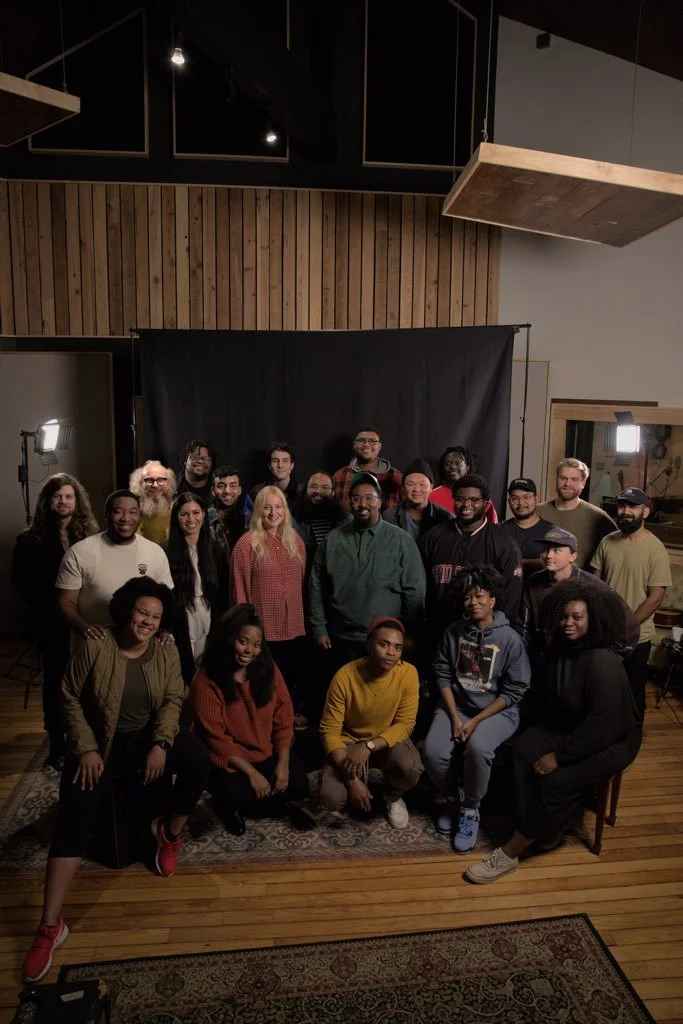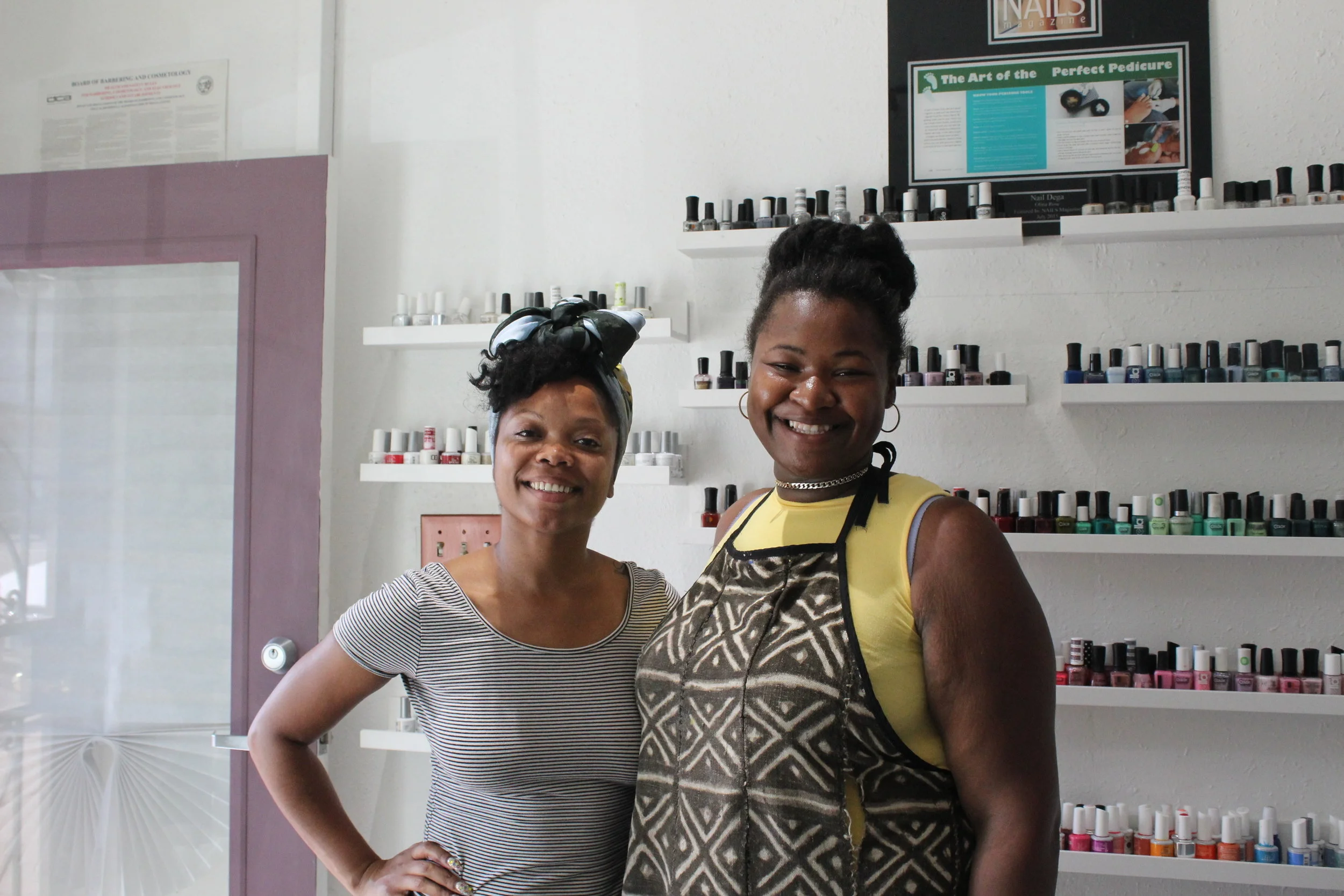A Q-and-A with U.K.-based Christian contemporary romance author Joan Embola on her Sovereign Love series.
Q-and-A: Christian Cook
Profile: Common Hymnal
Profile: Kezia The Poet
Young Kezia Snipe waited eagerly with her peers in her home church in Memphis, Tennessee as her Sunday School teacher handed out little memory cards. On them, pictures of popular stories from the bible that they had to remember and later, relay to everyone what was occurring in detail. She credits much of her growth and development to those formative years spent in church that shaped and molded her through singing in the children’s choir, Easter speeches, and youth events. Now in her thirties, Kezia conveys vivid imagery, gut-wrenching emotions and bible-laced themes in the poetic form of spoken word. Her latest work Girls and Elephants makes her writing come alive and echoes what was forged in secret places on stages. In fact, her poetry unfolds the anguish, lament, and labor of a dedicated writer in audible form.
“I promised myself I’d stop writing about writing, but I never vowed to stop writing about fighting no gloves. I'm Mike Tyson, biting ears off the silence so the darkness isn’t the only one who hears my violence. You want torment? Then stop writing, stop creating, get distracted, mental fracture, ears and hearts and minds and eyes all are canvas but out of balance because anxiety sends shaking creatives packing” – “Kept” from Girls and Elephants by Kezia the Poet
Snipes began writing at 7-years old and the first words she ever wrote rhymed. From there, she became immersed in reading and writing. These memories were something she held dear to her heart and eventually became a part of her life. She often would be seen surrounded by books. In her bathroom, in her bedroom, in whatever space she occupied, books were there. Writing became her comfort and way of expressing her feelings up until middle school when she stopped writing. During her freshman year at Wooddale High School, in her hometown of Memphis, Tennessee, her acting teacher, Louise Bennett approached her and encouraged her to come to a meeting for the speech and drama club after school. From there she joined the club and stayed on through senior year of high school. Becoming a member of the speech and drama club gave her confidence in performing and being on stage, and this led to her falling in love with the arts and especially poetry.
In her twenties, Snipes became a regular in and on the open mic scene as a spoken word poet. Never letting go of her religious upbringing, she truly began following Jesus after challenging conversations with people in her audiences after stepping off-stage. These encounters were the catalyst for her digging deeper into the Christian faith. One specific conversation with a Pastor of a thousand-member church sticks out in her mind where he said that her poem had the clearest explanation of the gospel he had ever heard, and he struggled to articulate the gospel in his own sermons.
“I just kind of stood there shocked, I think because it was a glimpse into his humanity, that kind of shook me up because we tend to whether we mean to or not, put pastors on a pedestal, and at the same time we’re robbing them of their humanity when they’re broken and human just like we are. My view of church and how it is and faith and how it exploded in that moment. The notion kind of developed that everybody is trying to make it whether they’re in the pulpit or the pit, we’re all on this journey trying to make it, that was a wakeup call for me and caused an adjustment of my perspective,” Snipes says.
This experience demonstrated her gifted ability as a poet. Girls and Elephants, an 8-track poetry album is her opus, and each poem focuses on girls and women in different scenarios and situations from mother and daughter struggle relationships to dealing with abuse. The title—Girls and Elephants––came to be after learning how females lead elephants’ packs.
“She is the one who has to be vigilant, she is the one who is hyper-intelligent, she is the one who has this beautiful relationship with the baby elephants, and whenever they’re migrating, she leads them to wherever they’re going to go. To me the message rings out that women were always capable, women always had the intelligence, always had the ability to do what needed to be done. That’s what women do, we do what needs to be done, so girls are the elephants in the room” Snipes says.
One of the elephants in the room is addressed on the track 1:15am, which began with a phone call from one of Snipes friends at 1:15 in the morning, revealing to Snipes the emotional turmoil she felt over the death of a sexual abuser who was prominent in the church. Then there’s the upbeat “Blessing for the Daughters” that details Snipes shuffling her way through adolescence to adulthood with little to no familial guidance, fighting for her place in the world.
“This blessing is for the daughters, who did not have the choice to choose. God Bless the daughters, who have a hard time accepting help because throughout her whole life, she could only really rely on herself. This is for the daughters, who could not carve out time to properly grieve the lack of capacity or presence or willingness so little room for reprieve for loss and void were much more consistent companions than her family.” – Excerpt from poem “Blessing for the Daughters”
Other tracks like the viral poem Narrative, expresses the anguish over black lives lost to police brutality and racist-incited violence. This project is one that Snipes deems Grammy-worthy, and one that she hopes will inspire people from all walks of life. “I always felt like I had to police myself when it came to how I expressed myself. I felt like it had to be in a certain kind of box, it had to be displayed a certain way. I did use some restraint with Girls and Elephants, but I think it came together beautifully. I think the production is wonderful and I think it’s my most well-thought-out project. I think it gives something to everybody, I’m really proud of it and I think it’s some of my best work,” Snipes says.
In the era of “Me Too,” Issa Rae’s and Black Girl Magic, Snipes describes herself in the poem “Homage” as an inquisitive little black girl with more books than she had friends, who now as an adult is comfortable in her own skin. Unapologetically Black, Christian, female, and a poet who has a way with words.
Stream Girls and Elephants on Spotify or Apple Music
—
Writer Bio:
Aasha Francis is a native Chicagoan from the southside of the city. She holds a bachelor’s degree in broadcast journalism from Columbia College Chicago and writes in her spare time. She serves in ministry alongside her husband in the Englewood neighborhood on the southside of Chicago and is a talented artist, songwriter, and producer. Artistically known as Aasha Marie, she is currently promoting her debut album “While You Were Sleeping” (WYWS) released in 2020.
Keep up with Aasha Marie on IG: aasha_marie or visit her website: www.aashamarie.com








